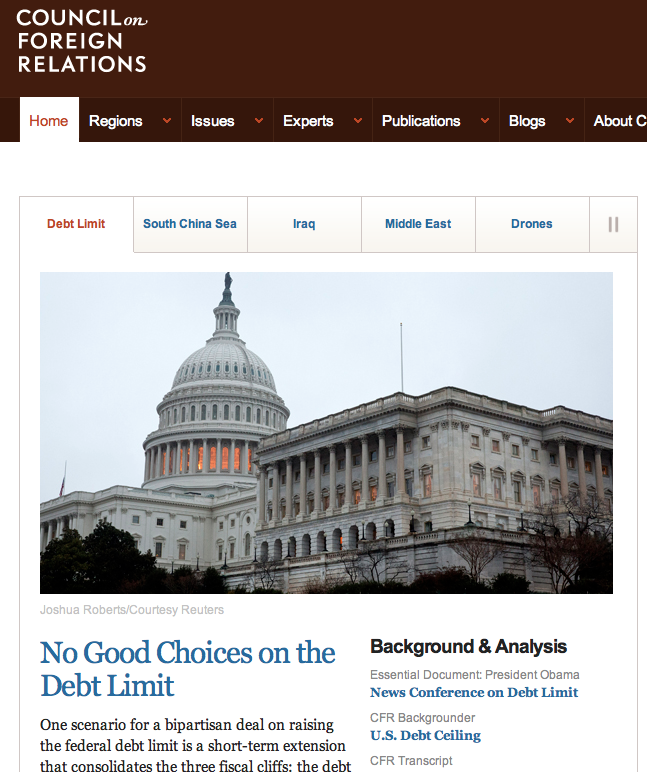It bears repeating that nobody votes on foreign policy, and most folks don’t know anything about it anyway (remember that a nontrivial number of Americans think South Korea is our greatest enemy). I’ll quote myself:
[N]obody gives a damn about foreign policy. Theories of democratic responsiveness and empirical models of foreign policy choice need to begin with this fact. Nobody cares! That thing we do? The international relations bit? It’s somewhat less important than professional bowling or HGTV. [Americans] only care about security–and their understanding of that is about as sophisticated as the Toby Keith song about the Statue of Liberty. …
[O]ur brilliant little theories about how voters express their desires over foreign policy rest on the idea that voters have some utility over foreign-policy choices. That, in turn, may also be flatly wrong. When voters vote, their choices are likely wholly driven by domestic factors. If that’s the case, there’s no residual term–foreign-policy voting is in the error term. This means that foreign policy should be relatively unconstrained, both ideologically (except among a very few elites) and in its implementation (because nobody cares).
I make the same point more diplomatically and, at much greater length, in my dissertation. I should note that the professional bowling jest was an exaggeration, but foreign affairs is demonstrably less important to voting behavior than college football (e.g., e.g.. I also point out that sometimes it’s okay to exaggerate for rhetorical effect.
Below the fold, I adduce new evidence that even the Council on Foreign Relations is somewhat ambivalent about foreign policy.

That’s a screenshot of the top story on today’s CFR.org, which I visited whilst harvesting linkage. What more telling sign of the pressures to report on the issues that readers care about than the fact that even the foreign policy establishment leads with the top domestic policy story of the day.

What makes you think the debt limit is a “domestic policy story?”
Um. Let’s see. It is? That is what makes me think so.
Let’s try a less flippant response. There are international ramifications to this story, as there are to a great many things the federal government does “domestically.” But that is not the focus of the CFR coverage nor is it a prominent part of the U.S. debate over the ceiling. And, of course, the debate itself is driven by purely domestic factors, not by international considerations. Contrast this with the bulk of the coverage on CFR.org, which is about stuff that is genuinely foreign relations (like US drone strikes) or that is genuinely international in its content (like its coverage about Nigeria or the South China Sea).
I understand why an editor might choose to highlight this story. But that’s precisely why it’s telling.
The narrative that the US is borrowing all this money from China in order to pay its bills is not a “prominent part of the U.S. debate over the ceiling?” Not so sure about that.
Has nothing to do with repayment, does it? The Chinese will still be paid. The GOP wants to cut domestic policy spending. Presumably their foreign policy isn’t “pay foreign creditors at the expense of grandmothers” but there you go.
It would seem that people who run campaigns at least believe that it might matter at the margins which can then make it , in a close election, important. The Bush administration in 2004 tried to win votes among the Macedonian diaspora by indicating that it would recognize Macedonia under its constitutional name. Indeed this was one of the first acts of Bush’s second term. I won’t say that it played any part in Bush winning Ohio but it seems possible that for some voters, particular aspects of foreign policy may have significant importance and influence how they differentiate between candidates or parties. Like all aspects of public policy, politicians have the most freedom to act when the costs to them are acceptable, as a result potentially big changes like the Asia pivot are easier to pull off than changing policy toward Cuba or Israel.
Vladimir: Great example (and theoretically exactly what the non-vituperative version of my thesis predicts)! Have a link? I’d love to cite this.
sorry, i did a quick google search and couldn’t come up with anything that could be a citation. i based my point on what i was personally hearing in 2004. i was in macedonia at the time and there was a man in ohio , a republican , who was of macedonian descent who tried to play up his own influence in the macedonian media. Among macedonians ,in macedonia and in the diaspora it came to be believed that the votes of people of macedonian descent had made a difference in ohio.